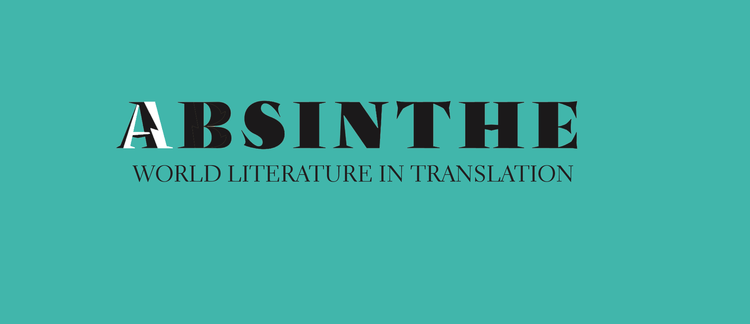Absinthe 29: Translating Jewish Multilingualism showcases the variety of languages and genres in which modern Jewish writers have expressed themselves. Spanning short stories, essays, poetry, and selections from novels, the selection of literary works featured in this issue of Absinthe cuts across distinctions between European and non-European literary traditions and addresses diverse themes, including social class, gender, immigration, religious traditions, love and marriage, and the act of writing itself.
Rather than consider disparate Jewish languages and histories in isolation, we bring them into conversation within an open-ended framework that explores Jewish multilingualism in the modern world. The multilingual narrative of Jewish modernity told through them, in seven languages, spans from the 1880s to the 2020s.
Its wide geographical distribution ranges from Tel Aviv to São Paulo through Buenos Aires, Istanbul, Thessaloniki, Livorno, Warsaw, Prague, and Chicago. Each text and context exhibits different aspects of the Jewish encounter with the conditions of modern society, exemplifying the ways in which Jewish writing engages and negotiates different cultures and traditions.
The new volume of Absinthe foregrounds the multilingual legacy of Jewish migration and diasporic life that has become ubiquitous in modern Jewish writing, and it is evident in the enriching and disruptive presence of multiple languages and literary traditions in each of these texts. The title of this volume, Translating Jewish Multilingualism, refers both to the English translations of these texts and to the processes of translation, mediation, and hybridization encapsulated in the works themselves.
Article
Acknowledgments & A Note on Transliteration
Absinthe Complit
2024-01-08 Volume 29 • 2023 • Translating Jewish Multilingualism
Introduction
Marina Mayorski and Maya Barzilai
2024-01-08 Volume 29 • 2023 • Translating Jewish Multilingualism
Pessie Hershfeld Pomerantz and Shloyme Shvarts, By the Shores of Lake Michigan: Selected Poems
Jessica Kirzane
2024-01-08 Volume 29 • 2023 • Translating Jewish Multilingualism
Juan Gelman, Dibaxu (selected poems)
Arianna Afsari
2024-01-08 Volume 29 • 2023 • Translating Jewish Multilingualism
Hezy Leskly, “The Rift”
Adriana X. Jacobs
2024-01-08 Volume 29 • 2023 • Translating Jewish Multilingualism
Jiří Mordechai Langer, “Holy Reb Velvele, the Brave Wolf from Zbaraz”
Denisa Glacova
2024-01-08 Volume 29 • 2023 • Translating Jewish Multilingualism
Viktor Levi, La Agua de la Sota, or The Ordeal of Jealousy
Nesi Altaras
2024-01-08 Volume 29 • 2023 • Translating Jewish Multilingualism
Sara Familiant, “A Modern Bride and Groom”
Anita Norich
2024-01-08 Volume 29 • 2023 • Translating Jewish Multilingualism
Uri Nissan Gnessin, “The Meal before the Fast”
Marina Mayorski
2024-01-08 Volume 29 • 2023 • Translating Jewish Multilingualism
Ben Yitzhak Saserdote, Refael and Miriam (excerpt)
Devi Mays
2024-01-08 Volume 29 • 2023 • Translating Jewish Multilingualism
Frida Alexandr, Filipson: Memories of the First Jewish Colony in Rio Grande do Sul
Júlia Irion Martins
2024-01-08 Volume 29 • 2023 • Translating Jewish Multilingualism
Yossi Sucary, “Win or Lose”
Maya Barzilai and Ruth Tsoffar
2024-01-08 Volume 29 • 2023 • Translating Jewish Multilingualism
Rita Kogan, “Stoneland” and “The Third Sin”
Yardenne Greenspan
2024-01-08 Volume 29 • 2023 • Translating Jewish Multilingualism
Shalom Bekache, The Harbinger of Good (excerpt)
Avner Ofrath
2024-01-08 Volume 29 • 2023 • Translating Jewish Multilingualism

